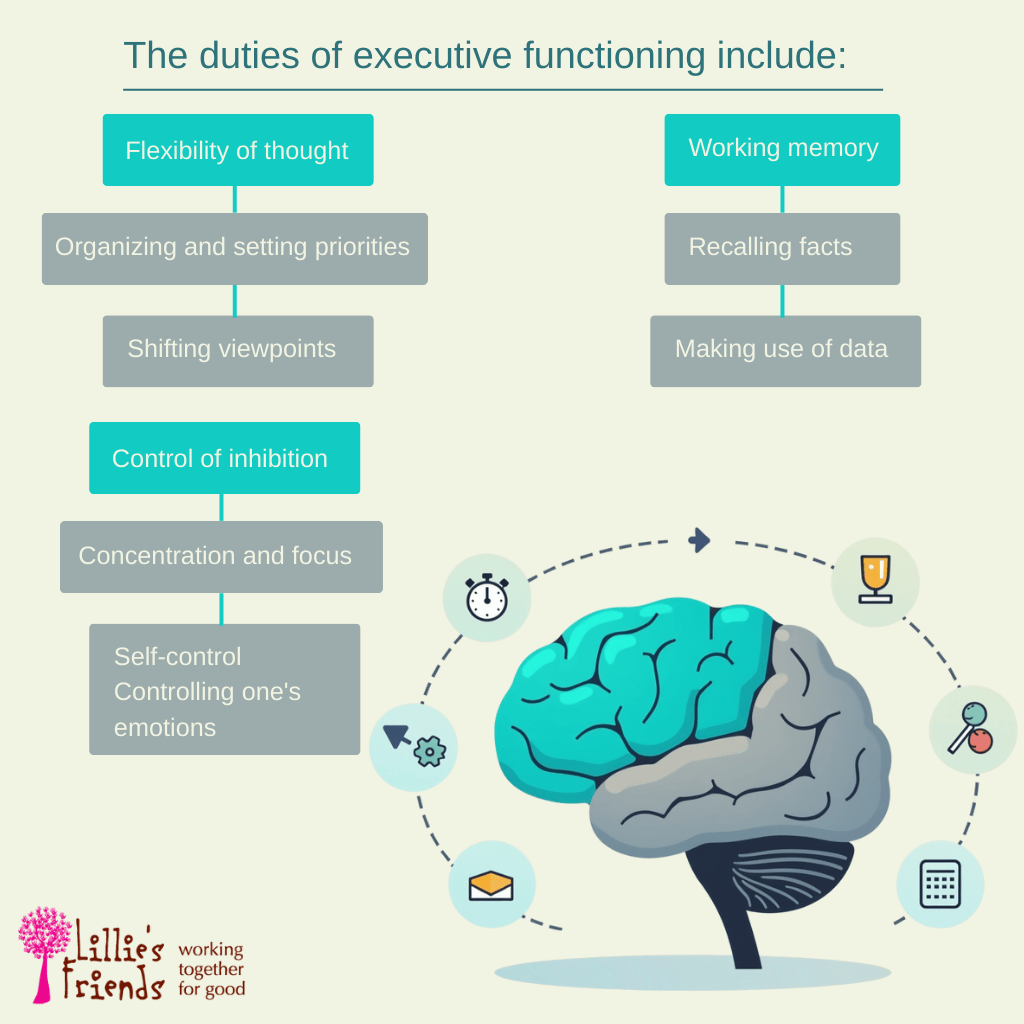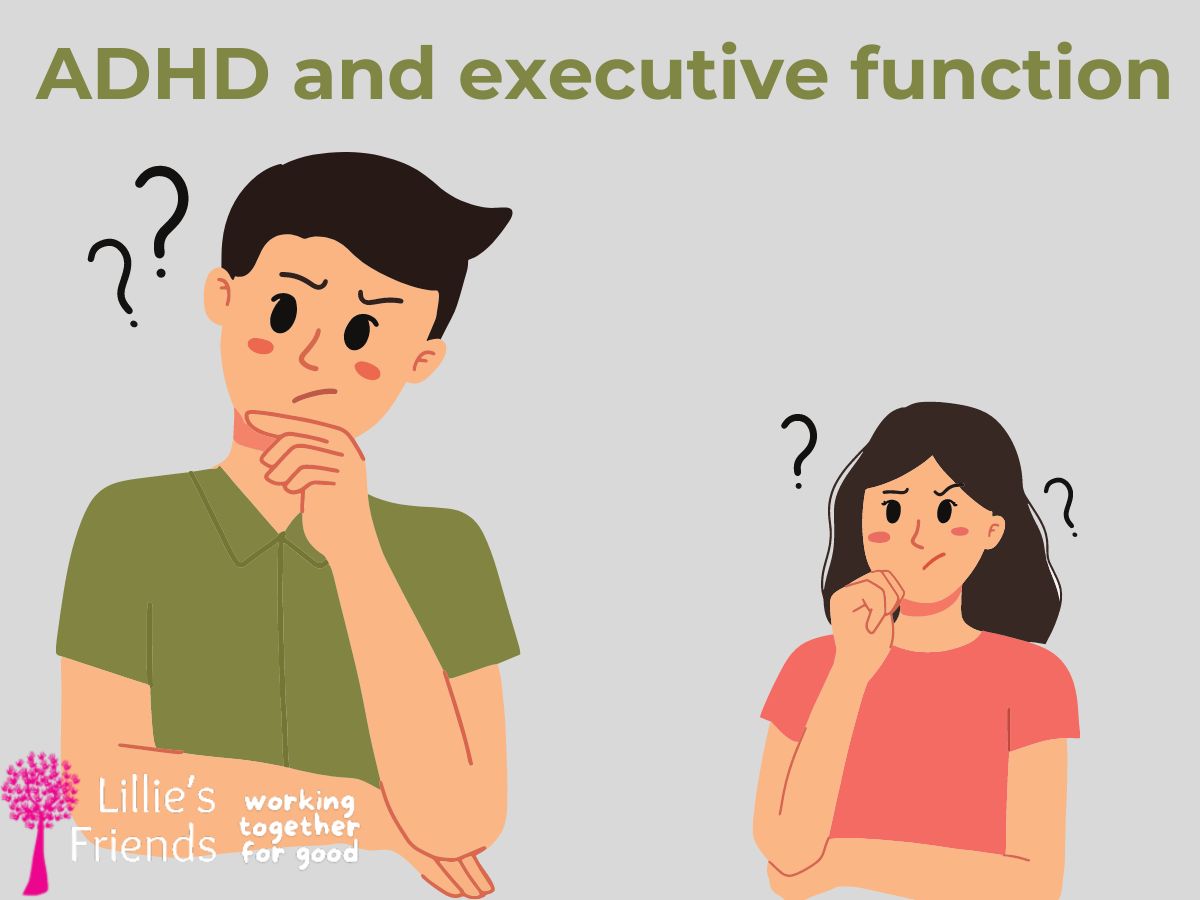Executive functioning is in charge of thought, behavior, and emotion. It assesses a person’s capacity for time management, activity planning, behavior control, and emotional regulation.
Setting priorities, remembering details, paying attention, focusing, and other tasks all require executive functioning skills. Also, they help people grasp how their actions now will either positively or negatively impact the future, which leads to self-censorship—doing or saying the incorrect thing when it’s required.
People with ADHD diagnoses may observe a decline in their executive functioning abilities. This article will look at the signs of executive function disorder, the relationship between executive functioning problems and ADHD, and the therapies that are available.
Executive Dysfunction Symptoms
There is no recognized diagnosis for executive dysfunction. It is a term for particular symptoms that are typically associated with ADHD ↗. Both those with ADHD and those without it ↗ may experience executive dysfunction. Nonetheless, there are parallels between the symptoms of ADHD and executive dysfunction. This makes sense because many symptoms of ADHD are caused by executive functioning issues. Nevertheless, executive dysfunction may not always result in agitation or hyperactivity, unlike ADHD.
Executive dysfunction in ADHD patients ↗ is relevant in many areas of life, some of which need self-control. These are a few instances of executive functioning issues brought on by ADHD.
1. Issues with memory
Working memory problems are a component of executive dysfunction, as has been shown. The term “working memory” describes the ability to retain and organize recently learned information for later use. Because it controls short-term memory and behavior, problems related to it might cause serious problems in life. An individual with ADHD may misplace items, forget minor details or significant occasions, struggle to memorize, comprehend, and apply information.
2. Issues with organizing, planning, and managing time
We need to plan projects, acquire the required materials, and work on the tasks regularly to finish them within a reasonable amount of time in order to accomplish everything that has to be done. Long-term project completion may be hampered by executive dysfunction, which could impede the entire process.
Individuals who struggle with this area of executive functioning have problems setting priorities for their knowledge, planning ahead and anticipating future occurrences, estimating how long tasks will take to finish, organizing their resources, and even just getting started.
3. Having trouble focusing and paying attention
An individual with executive dysfunction may find it challenging to stay focused on a task at hand. They could flip between the tasks and wind up doing something else, even if they are trying to concentrate on a single issue. Furthermore, it’s possible that they are unaware of the possibility.
People with executive functioning deficits are more likely to become quickly distracted and overlook important information. Apart from the outside world, their thoughts are taking up all of their time. Furthermore, they find it difficult to shift their focus when it has to be, and they are prone to being obsessed on a single concept and thinking exclusively about it.
4. Insufficient inhibitory control
Inhibitory control, or IC, is the intentional restriction of attention and automatic responses to anything. Restraining a compulsive response, ignoring distractions, and refraining from speaking aloud are a few examples of this technique. Problems in executive function may be a factor in emotional and behavioral regulation. Because of this, individuals who experience executive dysfunction may come across as easily sidetracked, impulsive, and stimulus-driven.

How Should Executive Dysfunction Be Treated?
The primary goal is to enhance the executive function abilities that are believed to be deficient. As a result, the treatment plan is always unique to the patient and concentrates on controlling and resolving specific problems that may differ throughout patients.
The process of creating the treatment plan is predicated on identifying the areas that require the greatest improvement as well as the underlying cause of the problem. When used in conjunction with medication ↗ to treat any coexisting conditions like ADHD, adults with executive dysfunction—which includes problems with inhibition, emotion control, time management, and planning—respond very well to cognitive-behavioral therapy. But in addition to particular medical measures, it might be advised that you change your way of life and make use of some advice, like the following:
- Proceed step-by-step or break large jobs up into smaller ones.
- Make use of time management applications and tools.
- Make visual schedules, indicate the required project milestones on those charts, and go over those charts multiple times a day.
- Ask for written instructions in addition to verbal ones whenever possible.
- Schedule and coordinate times for activity changes and transitions.
In summary
ADHD and executive function issues are frequently closely associated. Executive function problems are not exclusive to ADHD and can be treated for a variety of causes.











